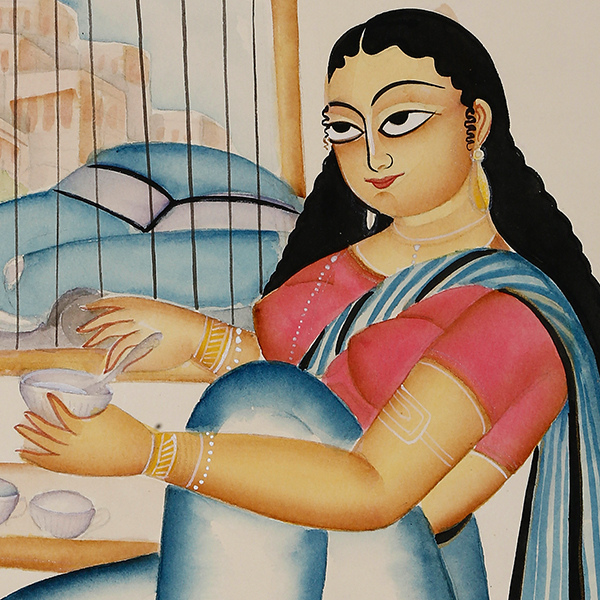
Map Loading...
Kalighat painting
WEST BENGAL
Kalighat painting is a discipline of modern art that began around the 19th century in Calcutta, the former capital of India under British rule. Created on mostly textile, or paper rolls, Kalighat paintings are titled due to the flourishing settlement of the Patuas, or cloth painters in the region of the Kali temples in Kalighat, Calcutta. The subject of these paintings are mostly mythological beings, though it has later evolved to more secular and modern themes.
The brush work on such paintings is deemed as “skilful, flawless, and elegant” by patrons. “Although it is evident that there would have first been a rough draft, a sketch, and ultimately the filling of the pattern, it is fascinating to understand the use of avant-garde tools used to make these paintings,”
Squirrel and goat locks were used to make the brushes for sketching. The dark black ink used for this intention was created using soot produced by smouldering an oil lamp under a pot. The other vivacious colours used for adorning the painting were made at home in the form of vegetable dyes or crushed stone fragments of different colours.
Material
Paper
Technique
Painting
Showcase




